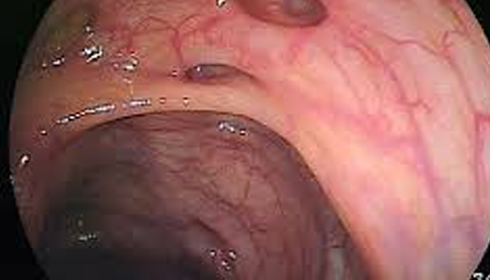
Patient Navigation Boosts Colonoscopy Follow-Up, New Study Finds
A study led by the University of Arizona Health Sciences has found that the involvement of patient navigators notably enhances the chances of patients receiving colonoscopies following abnormal stool test results. The study, published in the Annals of Internal Medicine, analysed the outcomes of patients who received navigation support in comparison to those who underwent standard follow-up care.
A total of 970 patients, aged between 50 and 75, were enrolled in the study after receiving abnormal faecal immunochemical test (FIT) results at Sea Mar Community Health Centres, which manage 32 clinics across western Washington. A total of 479 patients were randomly assigned to receive assistance from a patient navigator, while the remaining patients were provided with standard care, which included up to two phone calls and a letter inviting them to schedule a colonoscopy.
Patient navigators were instrumental in assisting patients throughout a multi-step process. Their support encompassed the distribution of introductory letters, the initiation of phone calls, and the transmission of text messages regarding six essential topics: introduction and barrier assessment, barrier resolution, bowel preparation instructions, bowel preparation reminders, colonoscopy check-ins, and a concluding follow-up after the procedure. Navigators carried out up to six scheduled call attempts, in addition to supplementary calls and follow-up letters for patients who did not receive initial contact. The study indicated that 55% of patients assigned to navigation underwent their colonoscopies within a year, in contrast to 42.5% in the usual care group, reflecting a 12% improvement.
Dr Gloria Coronado, PhD, who serves as the first author of the study and is the associate director of population science at the U of A Cancer Centre, highlighted the essential role of timely follow-up care. “Patients with abnormal stool test results should undergo a colonoscopy promptly to mitigate the risk of colorectal cancer and facilitate earlier detection of any potential later-stage cancers,” she stated. She stated, “Our findings indicate that the use of patient navigators led to improved rates of colonoscopy follow-up and a reduction in the time to follow-up for patients with an abnormal faecal immunochemical test, or FIT test.” This guidance in the process has the potential to enhance patient survival rates by facilitating earlier detection of cancer.
The navigator-assisted group not only enhanced overall colonoscopy rates but also recorded an average colonoscopy completion time of 229 days, which represents a 27-day reduction when compared to the usual care group. Dr Coronado highlighted that the reduction in time is clinically significant, as patients who postpone follow-up procedures face a sevenfold increase in the likelihood of dying from colorectal cancer.
The findings highlight the potential advantages of incorporating patient navigators into standard care for individuals with abnormal screening results. This study presents a significant argument for healthcare providers, indicating that systematic patient support may enhance adherence to follow-up recommendations and could lead to earlier cancer detection, potentially saving lives. The results indicate that patient navigation necessitates extra resources and coordination. However, the potential benefits, including enhanced patient outcomes and decreased mortality rates, may warrant the investment. TThe study indicates the potential for increased implementation of navigation programs within community health settings, particularly in light of the significant challenges associated with follow-up non-adherence.
Dr Coronado indicated that there is optimism regarding the potential for widespread implementation of this model, contingent upon its success. “By standardising navigation, clinics can implement procedures that involve notifying patients of their results and helping them comprehend the significance of a colonoscopy,” she stated. The study indicates that timely and systematic follow-up care may become standard practice, potentially leading to a significant reduction in colorectal cancer mortality rates.